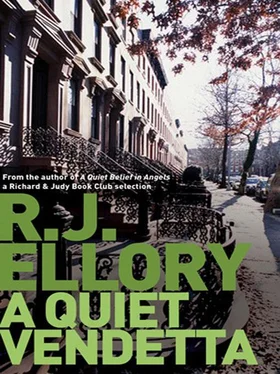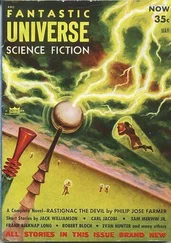Such was the way of his world.
Brutally early hours of Saturday morning.
Hartmann drove through the Arabi District below the Canal Bayou Bienvenue and above the 39 Highway that followed the Mississippi all the way down to St Bernard. Here it became Highway 46 and took a straight route east towards Evangeline. With Lake Borgne to the south he pulled off the main freeway, slowed for a while with the window of his car open wide, and felt the breeze that came down off the water. Still New Orleans, but – as with all the districts inside the city limits – Arabi possessed a flavor and tempo all its own. A string of seedy and run-down clam bars and restaurants hunkered low along the shorefront, down where the warehousemen and yardhands split their palms on packing crates and drank their dreams through bottles without labels that came from beneath counters, half a dollar at a time. There were girls down there too, girls who walked from their waists and hips, not from their legs, girls with too much lipstick and too much liquor, brassy acts teetering in precarious heels and shamelessly bearing a resemblance to the men they serviced, twenty or thirty dollars a time.
Hartmann drove on. Rain coming down now. Escaped for a little while from the Marriott, while the world and all its cousins slept soundly in the knowledge that the madness that same world offered would still be there come daylight.
Found himself out near the airport. Left the car and stood near the fence that separated the fields from the runways, hands in his pockets, his collar turned up against the bitter slant of rain that seemed to take razor-slices from his skin. He watched as a damp piece of paper was caught by the wind and tossed towards the fence. It clung desperately to the wire for a moment and then, as if moving across a chessboard, it shifted an inch or two to the left. Pawn to bishop three, and through the gap it went like a rocket, spinning out over the tarmac like it was late for some life-or-death appointment. A sound pulled at Hartmann’s attention, and he turned to watch an Ozark internal flight slide upwards from the far runway like a silver bullet. The clouds swallowed it effortlessly, so effortlessly there was nothing but a thin breath of slipstream to remind him that it was ever there at all.
He tried to light a cigarette but it was useless. He turned his back on the runway and started walking towards the Moisant International Terminal, and in that moment felt like he was turning his back on a watershed.
He could have run.
Hiring the car had been easy enough. A single call to room service. A credit card number. Forty-three minutes later a car appeared outside the front of the hotel. And then he was inside, had started the engine, felt the thing turn over as he changed gear and pulled away. Could’ve just kept on going. Could’ve taken 39 or 46 or any other highway. And Schaeffer and Woodroffe wouldn’t have realized he was gone for a good two or three hours. They would’ve found him. Of course they would. Only so many places he could’ve gone. Would have definitely found him. No question about it.
He walked back from the Terminal to his car and climbed in. Sat there for a while with the engine running, asking himself why he had already decided to stay. Perhaps for the girl, for Catherine Ducane. But then weren’t his own wife and daughter far more important than Catherine Ducane would ever be? Of course they were. So why was he staying? Duty? Obligation? Because these people could take away his job, his livelihood? Hadn’t he been waiting for something to do just that? To give him no choice but to walk out into the big wide world and find something else to do? Sure he had.
So why was he staying?
He closed his eyes, leaned back against the headrest and exhaled. Truth was he didn’t know.
An hour later Ray Hartmann was back in his room at the Marriott. He had taken off his wet clothes, showered, dressed once again, and by the time he called room service for coffee it was close to six in the morning.
Soon they would come, and when they came they would bring with them the worst the world could offer.
*
Schaeffer and Woodroffe didn’t even have the decency to come themselves. They sent one of their agents, a young Ivy League-looking kid of no more than twenty-two or three, pressed white shirt, immaculately knotted tie, shoes Hartmann could see his reflection in. He possessed the bold brass of naive self-importance, the brightness of eye that told Hartmann this kid had yet to see what was out there. Stand over the bloodied and battered corpse of some eight-year-old kid, walk through the aftermath of a fast food restaurant drive-by shooting, smell the rank odor that emanated from a drowned cadaver, hear the sound of gases erupting from a swollen stomach as the ME sliced it open like an overripe watermelon… Walk a mile or two in Ray Hartmann’s shoes and that bold brass and bright eye would grow tarnished and blunted and cynical and dark.
‘Mr Hartmann, they’re ready,’ the kid said.
Hartmann nodded, and rose from where he’d been sitting on the edge of the mattress.
He followed the kid out to the front of the hotel where a dark gray sedan sat like a well-behaved animal.
‘You want me to drive?’ Hartmann asked, and truth be told he asked merely to see the flash of anxiety and uncertainty in the kid’s eyes.
‘I’m here to drive you, Mr Hartmann,’ the kid said, and Hartmann smiled and shook his head, and said, ‘My name is Ray… you can just call me Ray.’
The kid smiled, seemed to relax a little. ‘I’m Sheldon,’ he said. ‘Sheldon Ross.’
‘Well Sheldon, let’s get the fuck outta here and find the bad guy, eh?’
Hartmann got in the passenger side.
‘Belt,’ Sheldon said as he climbed into the driver’s seat.
Hartmann didn’t argue. He reached behind his shoulder for the belt and buckled in. Sure as shit the kid wouldn’t drive more than forty miles an hour; the law was the law, and as far as Sheldon Ross was concerned the law was all there was. For now.
Schaeffer and Woodroffe were present and correct when Hartmann arrived. They were seated in an office off the furthermost corner of the main room. Agent Ross walked Hartmann down, left him standing there at the door and seemed to disappear without a sound. Schaeffer looked up, smiled as best he could, and waved Hartmann in.
‘So we wait,’ Schaeffer said. ‘We wait for your caller to show his face, it seems.’
Hartmann pulled a chair from against the wall and sat down. ‘Just a thought,’ he said, ‘but I don’t think it would do any harm for me to speak to the people that dealt with this from the beginning. A new viewpoint perhaps.’
Woodroffe shook his head. ‘I don’t see that such a thing would really serve any purpose,’ he said, and in his tone was the defensive territoriality that came with agencies crossing each other’s paths. He would in no way be pleased for Hartmann to find something they might have missed.
Hartmann shrugged nonchalantly. ‘Just figured it would be better than sitting around with nothing to do,’ he said. He turned and looked absent-mindedly out of the small window to his right. He assumed the manner of one who could not have cared less. The rain had stopped some while back but there were dark thunderheads along the horizon. He couldn’t tell if they were coming or going.
Schaeffer leaned forward and rested his forearms on the table. ‘I don’t see that it would do any harm. Was there anyone in particular you felt you should speak to?’
Hartmann shrugged again. ‘I don’t know, the ME perhaps, what was his name?’
‘Emerson,’ Woodroffe said. ‘Jim Emerson, the assistant medical examiner.’
Читать дальше







![Quiet Billie - Don't mistake the enemy [СИ]](/books/421973/quiet-billie-don-t-mistake-the-enemy-si-thumb.webp)




